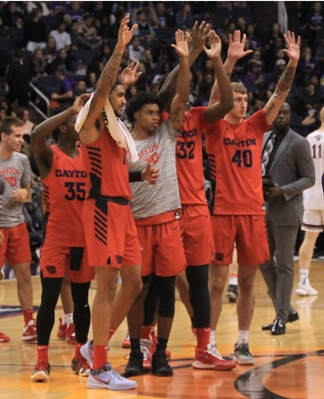
In an excellent review in The Academy of Management Annals 2012, Jean-Louis Denis, Ann Langley, and Vivianne Sergi discussed patterns of plural leadership. Plural leadership Is a “collective phenomenon that is distributed or shared among different people, potentially fluid, and constructed in interaction” (p. 212). Denis and his colleagues describe four types of plural leadership. My guess is you may have seen these in your organizations.
Sharing Leadership. Form of leadership often used by teams. Anyone can perform leadership functions. Everyone is a follower.
Producing Leadership. In knowledge-based organizations we sometimes see leadership just emerge out of interactions. In a meeting of equals, ideas flow, a path is developed, a plan started, an agreement reached. In this “producing leadership” style, individuals lead each other. Leadership emerges as a property of group interaction.
In both “sharing leadership” and “producing leadership”, followers are leaders and leaders are followers. Denis and his co-authors call this mutuality. In essence these involve reciprocal interactions that move things along where there is no clear “leader” identified.
Other forms of plural leadership still have identifiable leaders.
Pooling Leadership. In “pooling leadership”, there may be a group of people who lead together, a dyad, or triad. The leadership group leads the followers. There is still an “elite group”.
Spreading Leadership. In “spreading leadership”, leadership is passed from person to person, much like a relay team, as parts of a project or undertaking are completed. Leadership is periodically shifted. Not all followers lead nor are expected to lead.
My take-aways:
1. Sharing, producing, pooling, spreading: four approaches to plural leadership. We have identified these styles. Now we need research to help us find the best approach for different situations. In the meantime we can use our understanding of these different forms of plural leadership to expand our own leader skill set --- and to build human capital in our organizations.
2. I have enjoyed following the University of Dayton men's basketball team this season. As of this date, their record is 20-2 and they are ranked 6th nationally. They have only lost two games, both in overtime. Why mention the Dayton Flyers? The team has no official team captains. As stated by potential national player of the year and probable first round NBA draft pick Obi Toppin, "Everybody's a captain on our team." Perhaps plural leadership at its best.
Day, D.V. (2000). Leadership development: A review in context. Leadership Quarterly, 11, 581-613.
Denis, J., Langley, A.,& Sergi, V. (2012). Leadership in the plural. The Academy of Management Annals, 6:1, 211-283.
Image, "Dayton Flyers", by David Jablonski. Used with permission.
Modified from my blog of December 19, 2012.
© John Ballard, PhD, 2020. All rights reserved.
_________________________
Decoding the Workplace “deals with principles and practices that are timeless . . . Is this a must-have for managers and would-be managers? Yes.” Ron Riggio, Book Review, Academy of Management Learning & Education, June, 2018. Now also available as an audiobook and paperback.
 RSS Feed
RSS Feed